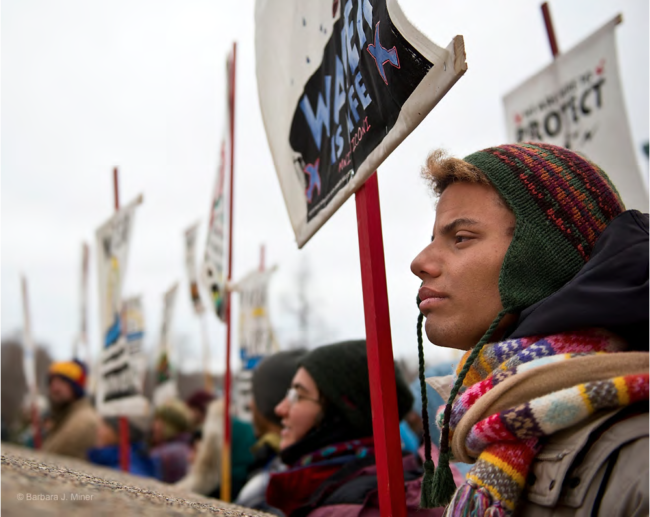
A demonstration in Bismarck, North Dakota, on Nov. 21, 2016, to protest police violence against Standing Rock Water Protectors. Source: Barbara Miner.
On April 1, 2016, one of the greatest organizing efforts to protect land, human rights, and the future of this planet began in North Dakota.
As described in the DAPL Fact Zine,
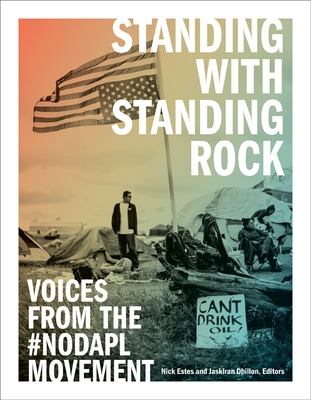 On April 1st, 2016, tribal citizens of the Standing Rock Lakota Nation and ally Lakota, Nakota, & Dakota citizens, under the group name “Chante tin’sa kinanzi Po” founded a Spirit Camp along the proposed route of the bakken oil pipeline, Dakota Access. The Spirit Camp is dedicated to stopping and raising awareness the Dakota Access pipeline, the dangers associated with pipeline spills and the necessity to protect the water resources of the Missouri river.
On April 1st, 2016, tribal citizens of the Standing Rock Lakota Nation and ally Lakota, Nakota, & Dakota citizens, under the group name “Chante tin’sa kinanzi Po” founded a Spirit Camp along the proposed route of the bakken oil pipeline, Dakota Access. The Spirit Camp is dedicated to stopping and raising awareness the Dakota Access pipeline, the dangers associated with pipeline spills and the necessity to protect the water resources of the Missouri river.
The Dakota Access Pipeline (DAPL) is proposed to transport 450,000 barrels per day of Bakken crude oil (which is fracked and highy volatile) from the lands of North Dakota to Patoka, Illinois. The threats this pipeline poses to the environment, human health and human rights are strikingly similar to those posed by the Keystone XL. Because the DAPL will cross over the Ogallala Aquifer (one of the largest aquifers in the world) and under the Missouri River twice (the longest river in the United States), the possible contamination of these water sources makes the Dakota Access pipeline a national threat.
The Standing Rock Sioux were joined by members of more than 200 other Native American nations and allies in taking a stand against the Dakota Access Pipeline.
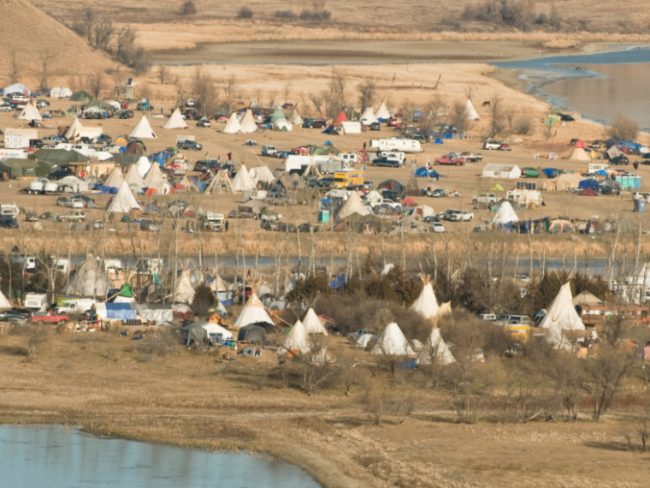
Listen to the song “We Shall Not Be Moved” by Joe DeFilippo and performed by the R. J. Phillips Band, a group of Baltimore studio musicians. Watch a video of the song below.
This event is included on the Zinn Education Project’s Climate Crisis Timeline.

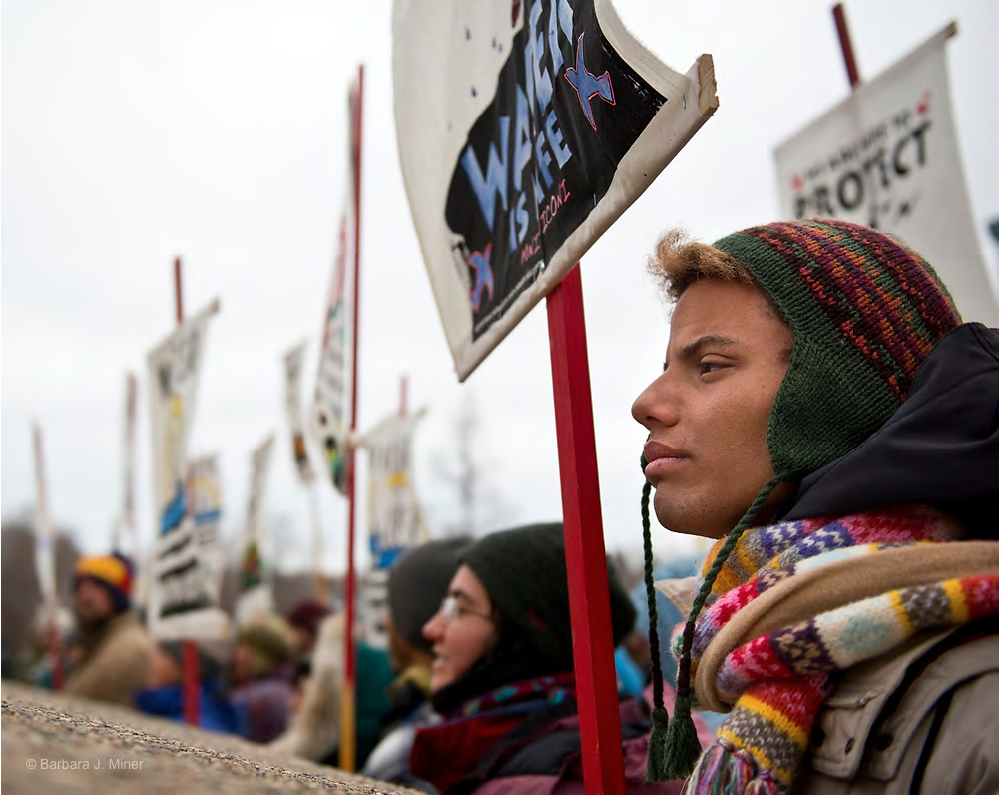
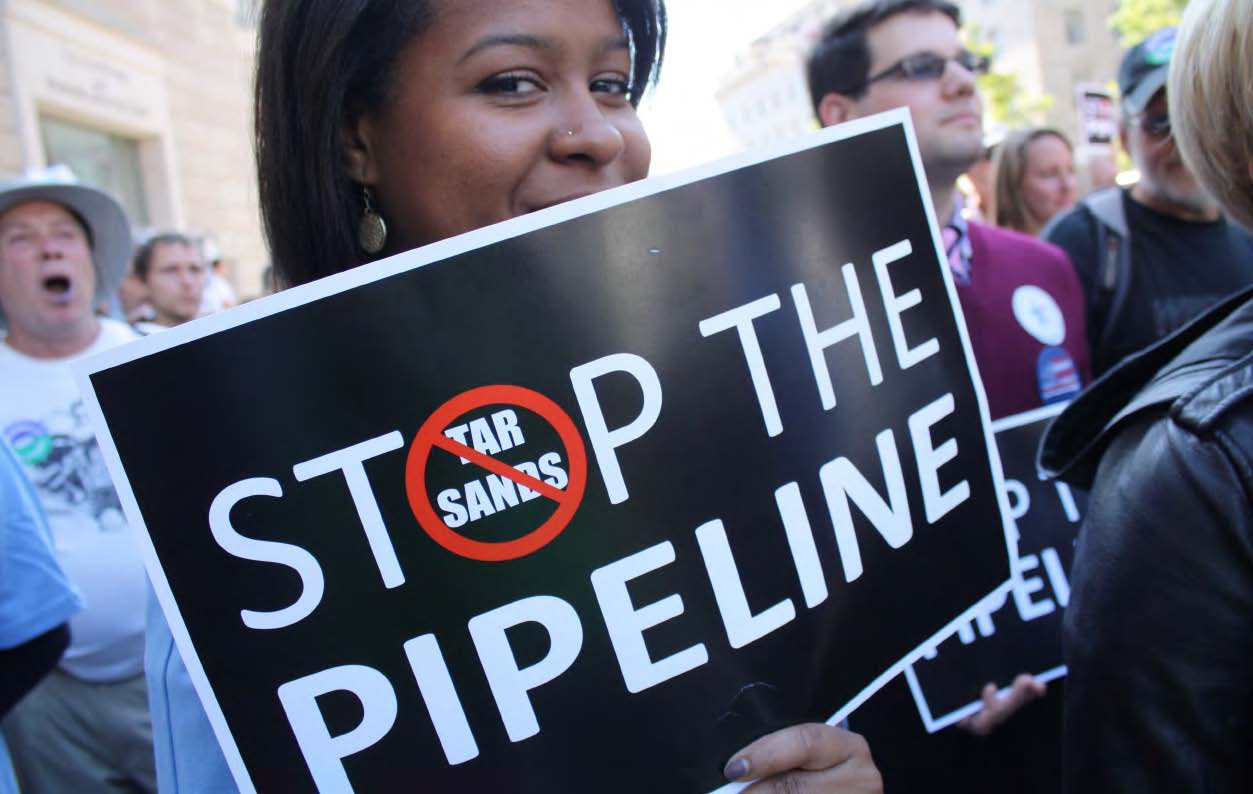

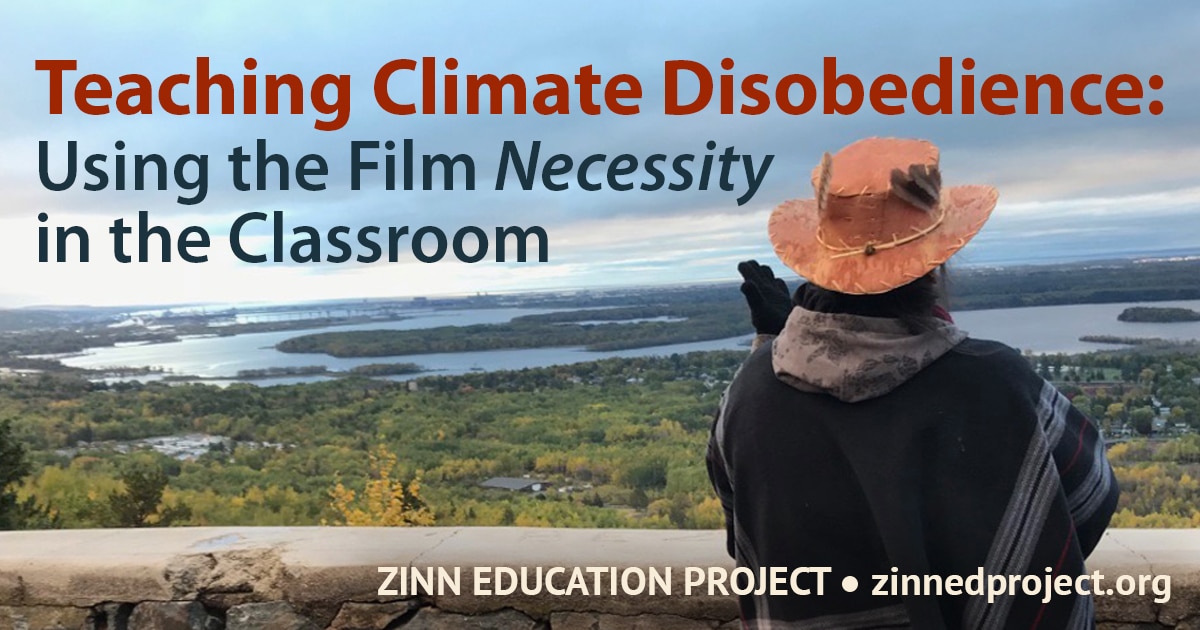
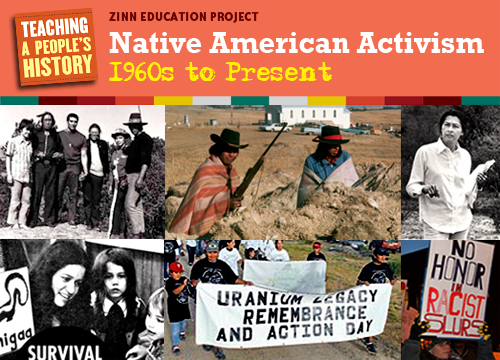
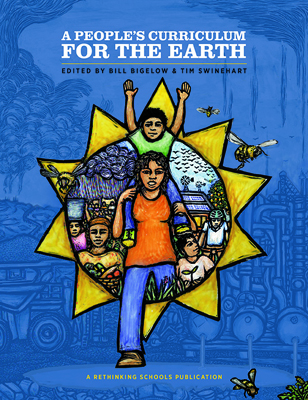
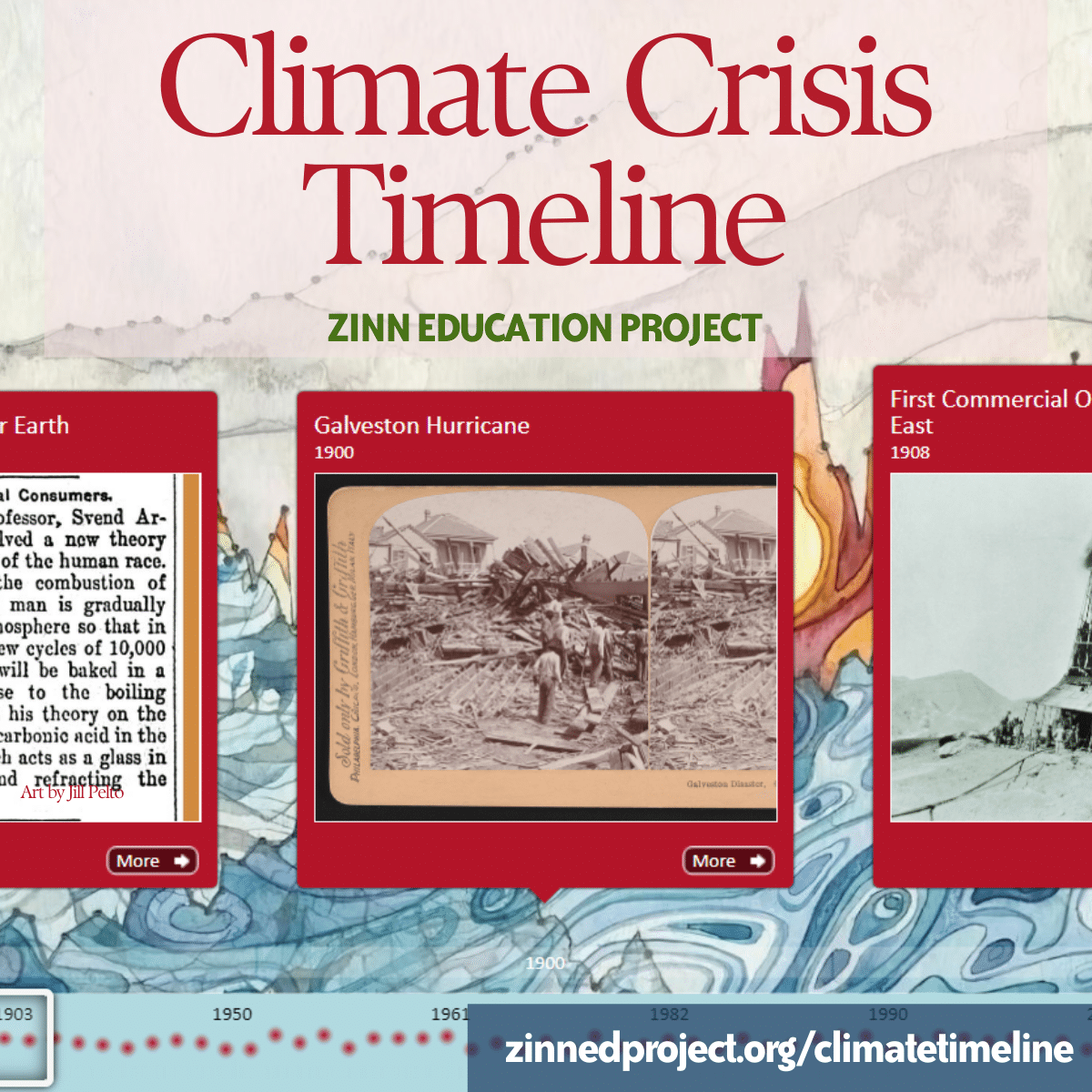

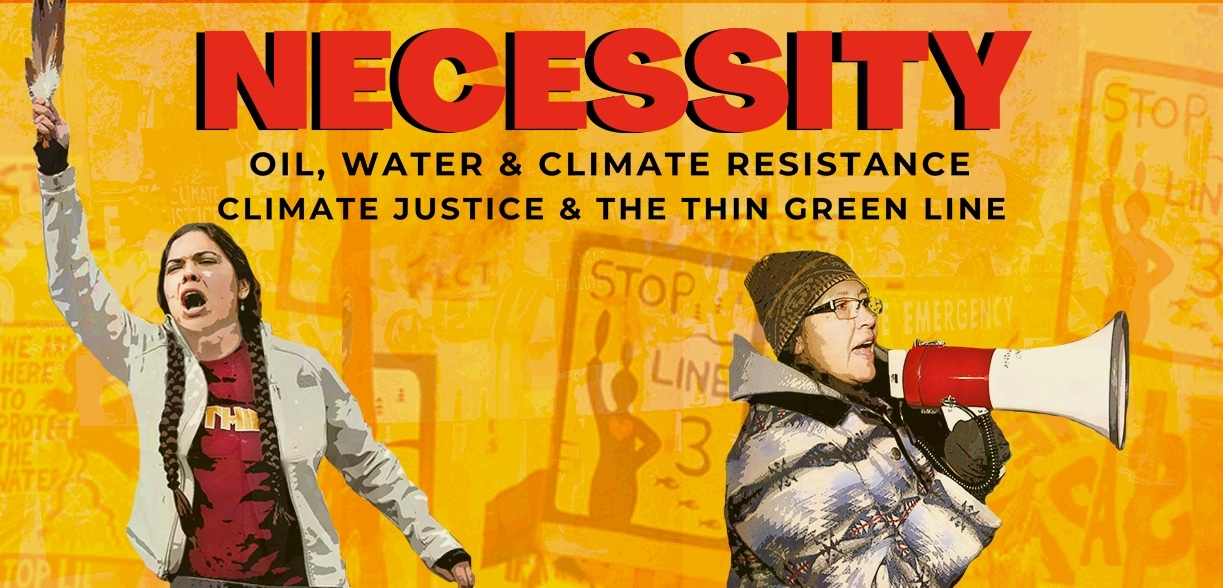
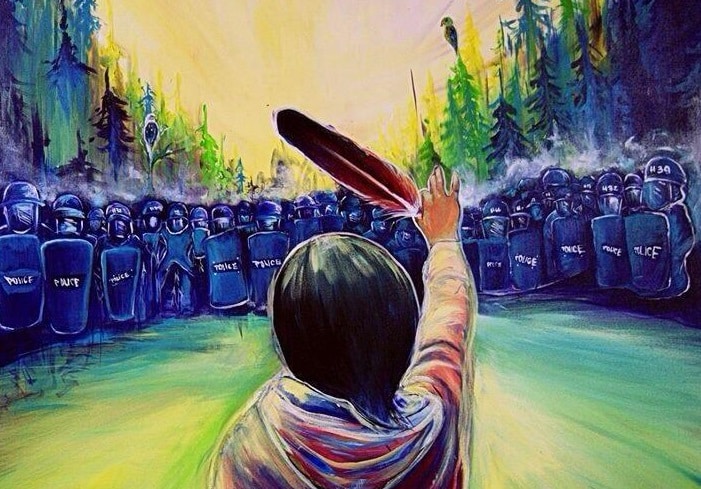





Twitter
Google plus
LinkedIn